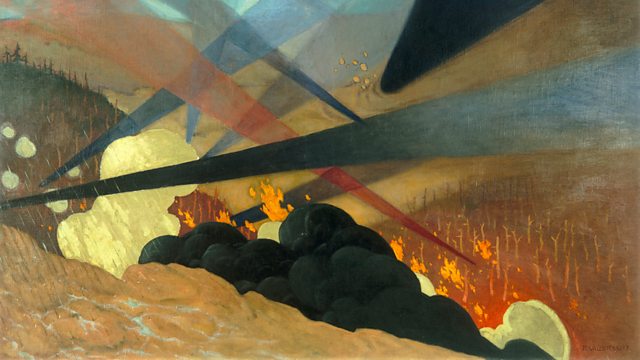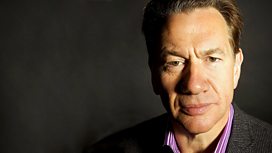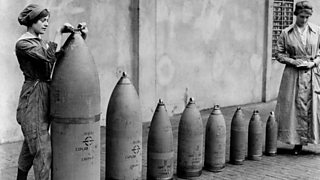Words for Battle
Francine Stock begins her exploration of the culture of the Great War in 1914 with the mobilization of the word. Intellectuals and authors became seen as crucial to the war effort.
1: Words for Battle. Francine Stock begins her exploration of the culture of the Great War in 1914 with the mobilization of the word. For more than 40 years the next war to come had been a staple of fiction. England had been invaded, bombed and conquered before a shot had ever been fired in anger and now the war was upon us. What unfolded in the first weeks in the towns of villages of Belgium turned the war into a cultural struggle for survival and intellectuals and authors were soon seen as crucial to the war effort. From Arnold Bennett to Israel Zangwill, the literary giants of Edwardian England went to war.
Producer Mark Burman.
Last on
More episodes
Previous
You are at the first episode
![]()
The Great War of Words
Michael Portillo explores the intellectual battleground of World War One.
![]()
The Great War of Words
Invasion and atrocity in 1914 transformed Britain's entry into the war into a moral cause
Featured
-
August 1914 by John Masefield
MasefieldÂ’s first & only poem of the war
The Vigil by Henry Newbolt
The first poem to see print after war was declared
Peace by Rubert Brooke
Inspired by BrookeÂ’s experience of the evacuation of Antwerp, Oct 1914
With the Allies
Richard Harding Davis
Thoughts On This War
John Galsworthy (November 1914)
For All We Have & Are by Rudyard Kipling
Kipling sounds the alarm in his poetic call to arms
The War to End War
H.G. WELLS
Common Sense About The War
GEORGE BERNARD SHAW
Belgium by Edith Wharton
Written especially for King AlbertÂ’s Book
Sonnet on the Belgian Expatriation
T. HARDY
For The Fallen by Laurence Binyon
Written in September 1914
Broadcast
- Sat 8 Mar 2014 10:30±«Óãtv Radio 4
Featured in...
![]()
World War 1 on Radio 4—Woman's Hour, World War One: Changing Women's Lives
Programming commemorating the centenary of World War One.
Part of...
Marking the centenary of World War One across the ±«Óãtv



